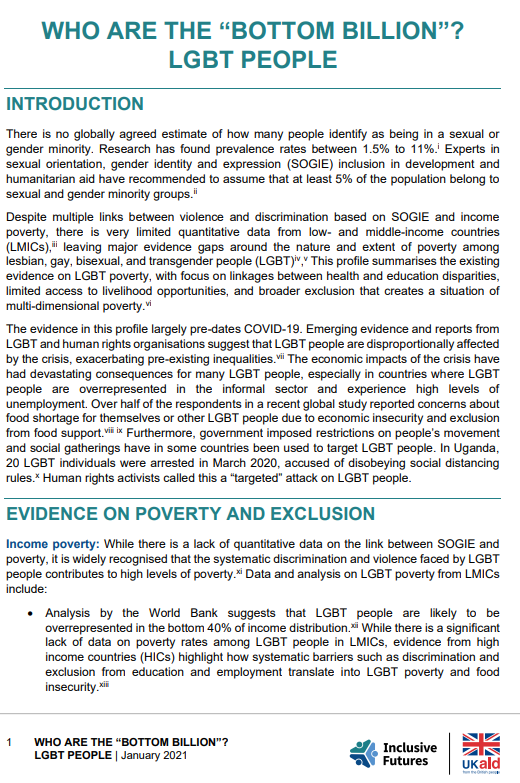This resource is part of a series of ‘poverty profiles’ by the Disability Inclusion Helpdesk (DI HD) focused on eight of the most marginalised group-based identities. It responds to the fact that global progress has not benefitted everyone equally, with many individuals remaining marginalised and extremely poor. Often, this is due to identity-based discrimination related to their disability status, age, ethnicity, or gender; and geographic disadvantage, for example through conflict or crisis. These disparities are often masked at the country level: with progress measured as an average across the whole population.
This profile summarises evidence on poverty and lesbian, gay, bisexual and transgender (LGBT+) people. It focuses on linkages between LGBT+ poverty and health and education disparities, limited access to livelihood opportunities, and broader exclusion that creates a situation of multi-dimensional poverty. The profile examines evidence on LGBT+ poverty and exclusion in relation to income poverty, health, education, employment, social protection, violence and discrimination, safe housing and sex work. It highlights evidence gaps that exist and concludes with a focus on ethical and safety challenges collecting data on LGBT+ people’s experiences of poverty, discrimination and violence.

